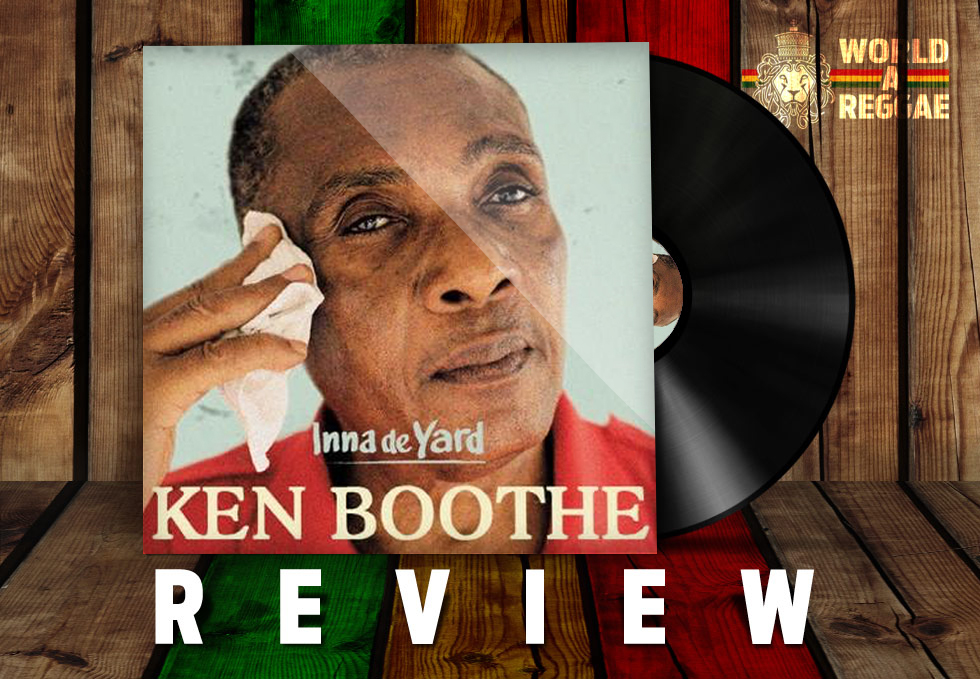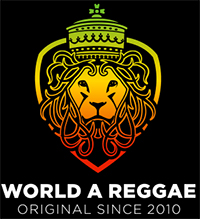One of the better developments in reggae music in recent times is the re-emergence of the Inna De Yard project, via the French Chapter Two label. And one of the better products of this project is Ken Boothe’s recently released 11 track compilation from his extensive back-catalogue. Boothe claims that ‘it’s one of the best projects that I’ve ever done’, as he reminds us that this outdoor acoustic recording arrangement brought him back to ‘the yard – that’s where every artist started’.
By Gerry McMahon
One of the better developments in reggae music in recent times is the re-emergence of the Inna De Yard project, via the French Chapter Two label. And one of the better products of this project is Ken Boothe’s recently released 11 track compilation from his extensive back-catalogue. Boothe claims that ‘it’s one of the best projects that I’ve ever done’, as he reminds us that this outdoor acoustic recording arrangement brought him back to ‘the yard – that’s where every artist started’.
This vocal supremo’s fame stretches back to the 1960s. Whilst still in his teens he cracked his Jamaican homeland’s hit parade. Even before that, as an 8 year old, he had won his first singing contest. By the mid-1970s he was catapulted to international stardom when ‘Every Thing I Owned’ topped the charts, enjoying an extended residency at number 1 on the popular British Top Of The Pops listing. Alas, the classic does not feature on this album, where Boothe reinterprets some of his most classic recordings in an acoustic style, recorded outdoors in Kingston, Jamaica.
The album – which is Boothe’s first international release in a quarter of a century – is a masterful fusion of an array of instruments – piano, accordion and brass aplenty, courtesy of some of reggae’s most celebrated artists. Prominent therein are Congo Cedric Myton, Kiddus I, Bo-Pee Bowen and Robbie Lyn. Notably however some of the most delectable touches come from Francois the Frenchman – otherwise known as Fixi. This accordion player lends some serious eloquence to the album’s array of emotional and mesmerising musical statements.
It stretches across 11 love infused tracks. Of course, most of us have at some time been elevated and\or afflicted by love of the romantic variety. And most of this romantic range – and its emotional fall-out – has been aptly covered in song by Boothe. Hence, he opens the album by doing full justice to the song that he first tackled in 1974 ‘Speak Softly Love’. This song has a history stretching from a Verdi opera to the classic film ‘The Godfather’. It contrasts sharply with the anguish of the follow on Studio 1 era’s ska-fuelled ‘I Am A Fool’, before ‘Black, Gold And Green’ (from the album of the same name) focuses on his love for and the beauty of his Jamaican homeland. Next up is Boothe’s first hit about the unfaithful ‘Artibella’ – a track that draws the very best from the vocalist’s sometimes serious soulful sound, whilst the accordion and piano maximise the songs’ sweetness.
The emotional roller-coaster ride that love can take you on throws up another classic in Bob Andy’s ‘I Don’t Want To See You Cry’, where the back-up artists’ vocal ensemble, alongside Boothe’s delivery, enhances the recording’s quality. This ensemble kicks in again on Bob Marley’s ‘African Lady’, where Boothe does what Boothe does best – giving voice to those in pain from the loss of love. Availing of the legendary Viceroys’ harmonies, the pace picks up big time with his 1969 hit ‘Let The Water Run Dry’ and then eases with ‘When I Fall In Love’, which preaches caution on the perils of falling in love – a theme which resurfaces in the following track’s take on the Supremes’ hit ‘You Keep Me Hangin On’.
Next up is the well-known ‘Just Another Girl’ song, that is almost unrecognisable from the familiar version, but all the better for its tasty treatment in the yard. Bringing the album to a close comes ‘Rastaman Chant’, reflecting the lockless Boothe’s Rastafarian roots, which (as you’d expect), has much to say about the perils of Babylon, set to the rolling rhythms of the Nyahbinghi drums.
Way ‘back in the day’ Boothe showed his assertiveness and confidence when walking out of Coxsone Dodd’s Studio 1 due to money matters. Like a (very long) list of reggae artists, Boothe has some serious grievances about the way he was treated financially during his career. The pain therefrom doesn’t feature on this album, but hopefully the returns from it can serve to assuage some of that pain.
Nice one Ken, producer Romain Germa and the Inna de Yard crew. Keep them sounds from the Blue Mountain under the Kingston sky a coming.
Releasedate: 11 October 2017
Ken Boothe – Inna De Yard
℗ 2017 Wagram Music / Chapter Two Records


